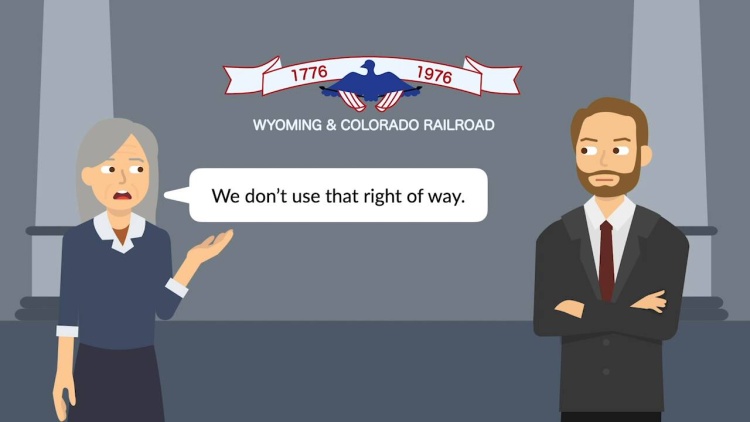Marvin M. Brandt Revocable Trust v. United States
United States Supreme Court
572 U.S. 93 (2014)

- Written by Sean Carroll, JD
Facts
Under the Railroad Right-of-Way Act of 1875, the United States government (plaintiff) granted railroad companies rights-of-way to help spur a transcontinental railroad. In 1976, the United States granted a parcel of land to the Brandt family (defendant), subject to a right-of-way the government had granted to the Laramie, Hahn’s Peak & Pacific Railroad Company in 1908. The grant to the Brandts did not specify what would happen if the railroad abandoned the right-of-way. In 2004, the railroad company’s successor abandoned the right-of-way. The government sued the Brandt family, seeking a declaratory judgment that it owned the abandoned right-of-way. The government claimed that it owned a reversionary interest in the right-of-way and that upon abandonment, the right-of-way reverted to the government. The district court granted the government summary judgment. The United States Court of Appeals for the Tenth Circuit affirmed. The United States Supreme Court granted certiorari.
Rule of Law
Issue
Holding and Reasoning (Roberts, C.J.)
Dissent (Sotomayor, J.)
What to do next…
Here's why 907,000 law students have relied on our case briefs:
- Written by law professors and practitioners, not other law students. 47,100 briefs, keyed to 996 casebooks. Top-notch customer support.
- The right amount of information, includes the facts, issues, rule of law, holding and reasoning, and any concurrences and dissents.
- Access in your classes, works on your mobile and tablet. Massive library of related video lessons and high quality multiple-choice questions.
- Easy to use, uniform format for every case brief. Written in plain English, not in legalese. Our briefs summarize and simplify; they don’t just repeat the court’s language.





